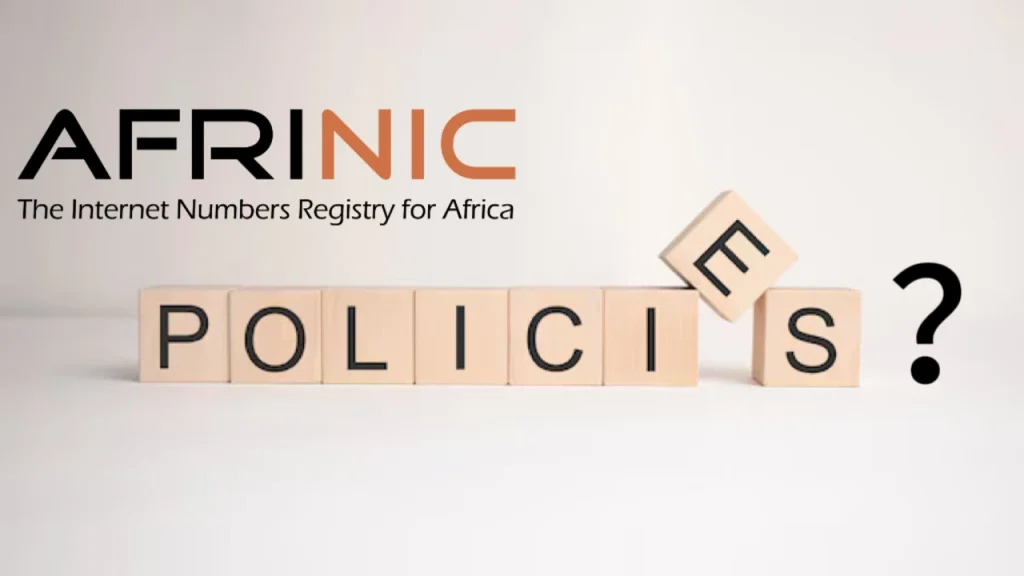- AFRINIC policy development; Internet governance
- AFRINIC policy development; regional internet registry
Institutional gridlock and eroding community trust
AFRINIC, the Regional Internet Registry (RIR) for Africa, is responsible for managing IP address allocations and shaping policy through its Policy Development Process (PDP). Designed to be bottom-up, open, and community-driven, the PDP has in recent years come to a near standstill. Despite repeated calls for reform, AFRINIC’s internal governance structures remain in disarray, paralysing its ability to develop and implement policies.
In June 2025, AFRINIC attempted to hold long-overdue board elections after nearly three years without leadership. However, the entire process was annulled due to disputes around voting procedures, including the invalidation of otherwise compliant proxy votes. The cancellation disrupted the fragile attempt at restoring institutional continuity and highlighted AFRINIC’s inability to manage procedural complexity. With no functioning board, policy proposals remain stuck in limbo, unable to progress through the formal ratification process.
The concerns are not limited to within Africa. ICANN issued a rare public statement expressing unease over the composition of AFRINIC’s Nomination Committee (NomCom), and called for replacements to ensure integrity. This marked a significant moment of external scrutiny and revealed how far AFRINIC’s governance had drifted from global standards of transparency and impartiality.
Also Read: Cloud Innovation calls for AFRINIC wind-up
Also Read: Cloud Innovation calls for AFRINIC wind-up after ‘impossible’ election standards
Legal disputes undermining policy execution
AFRINIC’s ongoing litigation with Cloud Innovation has placed its operations under extraordinary legal and financial pressure. Beginning in 2021, the registry attempted to revoke and freeze IP address blocks held by the company, triggering a prolonged court battle. Several Mauritian court rulings found AFRINIC to have acted outside its own rules, even resulting in the freezing of AFRINIC’s bank accounts. This disrupted its ability to fulfil core operational and policy functions.
Rather than resolving policy disagreements through the community-based PDP, AFRINIC increasingly relied on legal tactics. This shift undermined the registry’s foundational principle of consensus-based governance. Regional counterparts like RIPE NCC, LACNIC, and ARIN raised alarm. RIPE’s community mailing list openly questioned AFRINIC’s capacity to deliver reliable services and suggested that critical registry functions might need to be temporarily handled by other RIRs. A formal letter co-signed by multiple RIRs warned that AFRINIC’s actions risked violating the global multistakeholder model of internet governance.
In this climate of legal overreach and diminished governance legitimacy, even well-supported policy proposals stalled. Without a board to ratify changes or a functioning PDP to channel stakeholder input, AFRINIC’s policy apparatus remained frozen.
Also read: Timeline of the AFRINIC vs Cloud Innovation Ltd dispute
Also read: AFRINIC elections 2025: Everything you need to know
Mounting pressure for reform
With trust eroding and institutional paralysis deepening, AFRINIC’s policy development process faces a legitimacy crisis. Years of stalled elections, judicial entanglements, and leadership voids have effectively shut down the community’s ability to advance policy. Key proposals concerning IPv6 adoption, WHOIS accuracy, and inter-RIR coordination are all on hold due to structural dysfunction.
External actors including ICANN, the Number Resource Society (NRS), and regional associations have called for robust reform. Recommendations include establishing an independent election oversight committee, introducing conflict-of-interest safeguards, and mandating periodic audits to restore trust. Community advocates also urge AFRINIC to revive participatory mechanisms that prioritise consensus over courtroom battles.
Unless AFRINIC rebalances its governance model to reflect community values and restore operational independence, its role as Africa’s sole RIR could further erode. Policy development depends not only on technical need, but on legitimacy, inclusivity, and procedural clarity. Without these, AFRINIC risks becoming institutionally irrelevant in shaping the future of Africa’s internet.

